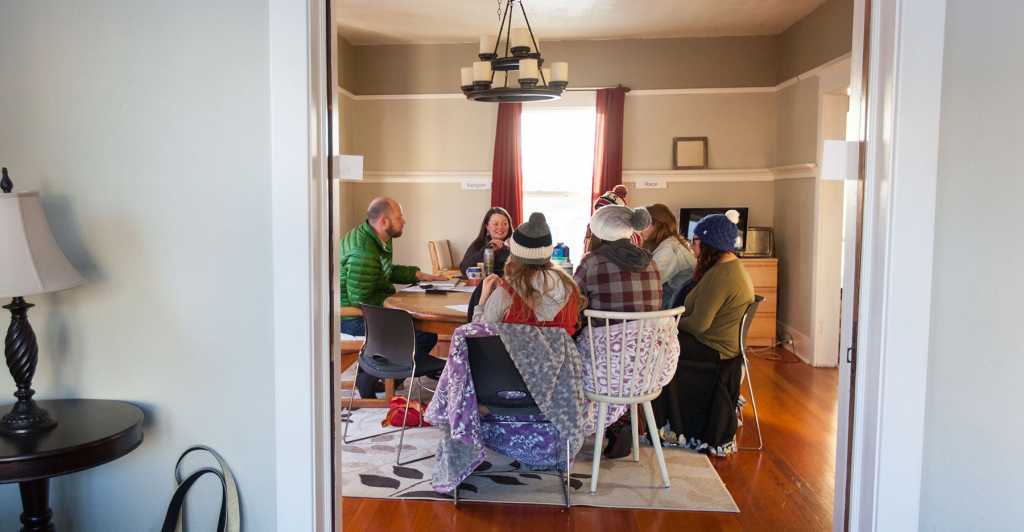Page 20 • (7,683 results in 0.058 seconds)
-
S. Erving Severtson Research Fellowship Forest Foundation Undergraduate Research ProgramIn May 2000, a grant was awarded to the Division of Social Sciences for a student-faculty research program to honor PLU faculty member and alumnus (1955) Dr. S. Erving (Erv) Severtson. Endowed by the Forest Foundation, the Severtson funding supports joint student and faculty research by providing financial assistance. For student researchers, the grant covers up to $500 for project expenses and a $3,950
-

The Washington Monthly Also Names PLU a ‘Best Bang for the Buck’ Institution TACOMA, Wash. (Aug. 24, 2015)—Pacific Lutheran University ranks number 25 in the Best Master’s Universities category of the national 2015 Washington Monthly College Rankings released Aug. 24. That’s PLU’s best ranking in…
and students care about all these and more.” In rating institutions based on their contributions to the public good, Washington Monthly defines those three categories further: Social Mobility: recruiting and graduating low-income students; Research: producing cutting-edge scholarship and Ph.D.s; and Service: encouraging students to give something back to their country. The Washington Monthly also named PLU a “Best Bang for the Buck” university, meaning that a PLU education offers the best value
-
Student Perception of Impact of General Education (pdf) view download
-
Student Perception of Impact of General Education (pdf) view download
-
various accreditations and approvals. Certification Chemistry: (including certified Biochemistry and Chemical Physics Options) – American Chemical Society Approval Education: State of Washington Professional Educator Standards Board Institutional Research Information To view information on enrollment, retention of First-Year students and faculty, go to: www.plu.edu/institutional-research/
-

Study away programs don’t just take students to countries around the world. Some Lutes stay right in PLU’s backyard.
launched this semester. (In a good way, he added). Zylstra’s the director of the Center for Community Engagement and Service, which houses the new program. The study away experience, the newest Gateway program through the Wang Center for Global Education, is the result of three years of intensive planning. It started with an idea in the early 2000s to provide living and learning re-entry for students who study away and gain a rich new perspective. In 2003, Zylstra said students coming back from the
-

By Sarah Cornell-Maier ‘19. This Fall, Pacific Lutheran University is introducing a new class that serves as a gateway to the Innovation Studies Program . Hist/Phil 248: Innovation, Ethics, and Society is a team-taught course that combines many different fields of study into one. It…
and connected to the worlds of work and research. Students complete drawing and improv exercises, work in teams, and learn the stages in innovation research. The process is fun for the teachers, as well as the students. “Innovation Studies is by nature interdisciplinary,” said Professor Halvorson, director of the program. “Our students collaborate on problem solving by working and laughing together at the boundaries of art & design, business, economics, history, and other disciplines. The
-
Research at the School of BusinessThe faculty of the School of Business at PLU are committed to scholarship, innovation, and a global perspective. To foster a relevant and vibrant research community we maintain ongoing scholarly contributions in our respective fields. Select the link below to view a sample of recent academic publications. Business Faculty Research
-
Andrea Munro Research GroupIn the Munro Lab, we study the synthesis, surface chemistry, stability, and properties of colloidal semiconductor nanocrystals. We have studied ligand exchange and we grow nanocrystals in a variety of shape and sizes. Student researchers work in our lab during the academic year and as part of the Natural Sciences Undergraduate Summer Research Program. In a typical summer 2-3 undergraduate students work in the Munro Lab for 10 weeks. They learn to synthesize colloidal
-
Dave Song Research GroupResearch in the Song lab centers on understanding the fundamental mechanisms of energy conversion in chemistry and biology. Our primary focus revolves around the transfer of both the proton and electron in biological catalysis via a ubiquitous mechanism called proton-coupled electron transfer (PCET), underpinning key metabolic processes such as photosynthesis, respiration, and nucleotide reduction. The mechanistic complexities associated with the inherently dual particle
Do you have any feedback for us? If so, feel free to use our Feedback Form.


